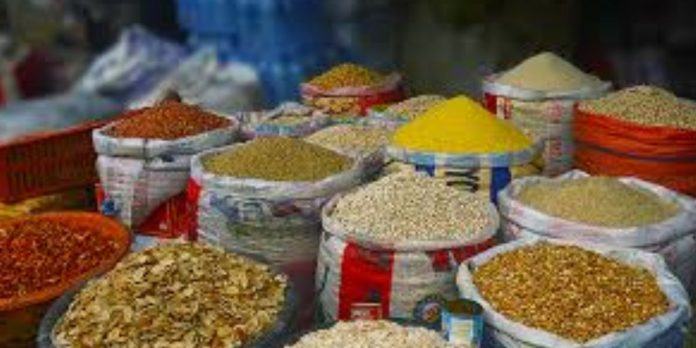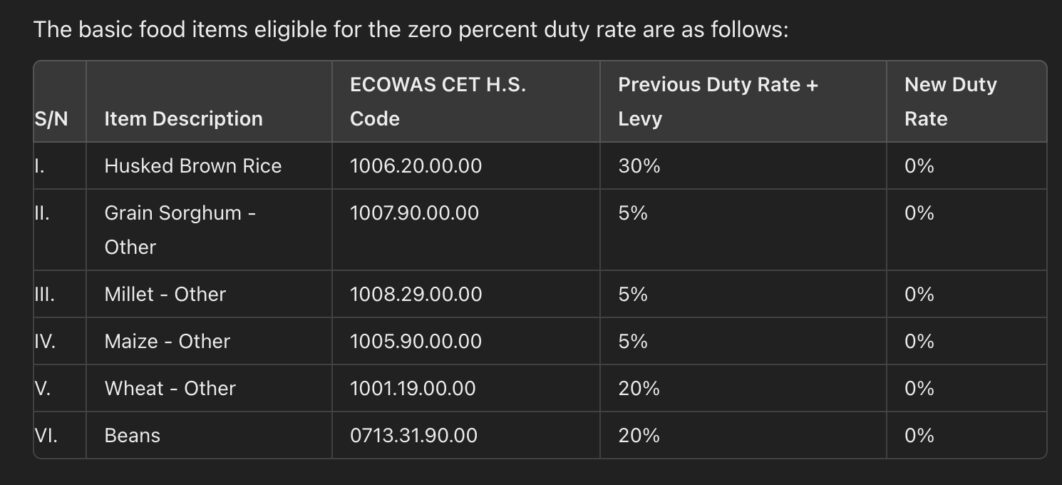
The Nigeria Customs Service (NCS) has announced new guidelines for the implementation of a zero per cent duty rate and Value Added Tax (VAT) exemption on selected basic food items.
NCS spokesperson, Abdullahi Maiwada, disclosed this in a statement on Wednesday.
Maiwada said the zero per cent duty rate policy follows a presidential directive aimed at alleviating the economic hardships faced by Nigerians due to the soaring prices of essential commodities.
“This policy is effective from July 15, 2024, and will remain in force until December 31, 2024. This measure aims to mitigate the high cost of food items in the Nigerian market by making essential commodities more affordable for citizens. The initiative is part of the government’s broader efforts to address food security challenges and ensure that basic foodstuffs are accessible to all Nigerians,” Maiwada said.
According to Maiwada, while this temporary measure is intended to provide immediate relief, it does not compromise long-term strategies designed to protect local farmers and manufacturers.
Maiwada said that to participate in the zero-duty importation scheme, companies must meet stringent eligibility criteria.
He stated, “It is pertinent to note that the implementation of this policy will focus on addressing the national supply gap. To participate in the zero-duty importation of basic food items, a company must be incorporated in Nigeria and have been operational for at least five years. It must have filed annual returns and financial statements and paid taxes and statutory payroll obligations for the past five years.”
Maiwada also noted that companies importing specific food items such as husked brown rice, grain sorghum, or millet are required to own and operate a milling plant with a minimum capacity of 100 tonnes per day for at least four years and possess adequate farmland for cultivation.
He added that for those importing maize, wheat, or beans, the requirements extend to being agricultural companies with sufficient farmland or agro-processing firms with a robust out-grower network for cultivation.
The basic food items eligible for the zero per cent duty rate are as follows:

Maiwada, however, disclosed that the Federal Ministry of Finance will periodically provide the NCS with a list of importers and their approved quotas to facilitate the importation of these basic food items within the framework of this policy.
He noted that “the policy requires that at least 75% of imported items be sold through recognized commodities exchanges, with all transactions and storage recorded. Companies must keep comprehensive records of all related activities, which the government can request for compliance verification.”
“If a company fails to meet its obligations under the import authorization, it will lose all waivers and must pay the applicable VAT, levies, and import duties. This penalty also applies if the company exports the imported items in their original or processed form outside Nigeria.”






